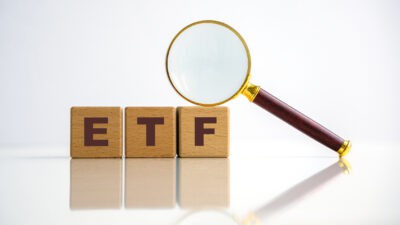Exchange-traded funds (ETFs) might be the best way for most people to invest in shares over the long-term.
Passive investing and sticking with it means you can avoid several investing behaviour issues that can pop up when investing in individual shares. It's much easier to 'stay the course' with shares when you know it's just a temporary market setback rather than a stock-specific issue.
These two ETFs could provide a good mix of income and potential growth:
Vanguard Australian Share ETF (ASX: VAS)
This ETF is offered by Vanguard, one of the world leaders in providing low-cost ETFs. The ETF aims to track the return of the ASX 300. The ASX has been one of the best share markets over the past century, although a lot of its weighting these days is towards the big banks like Commonwealth Bank of Australia (ASX: CBA) and Westpac Banking Corp (ASX: WBC), which are facing a number of issues.
With a low annual management fee cost of 0.14% per annum and a mostly-franked dividend yield of 4.3%, it's easy to see why this ETF is popular with Australian investors wanting broad exposure to the ASX.
BetaShares Global Robotics and Artificial Intelligence ETF (ASX: RBTZ)
The problem with most ASX ETFs is that they lack a good allocation to technology or growth.
Futurists will happily tell you that robotics and artificial intelligence is dramatically going to change our world over the next decade or two, so betting on a whole group of businesses could lead to a few large winners. The robotics and AI ETF offered by BetaShares could be a good way to get exposure to this theme.
The ETF's largest holdings include Intuitive Surgical, Keyence, Mitsubishi Electrical, Fanuc, ABB, Daifuki, Nvidia, Omron, SMC and Yaskawa Electric.
Foolish takeaway
Both of these ETFs could provide attractive returns over the coming years. However, I'd be more attracted to the robotics & AI ETF due to the large growth potential of the industry over the next few decades.







